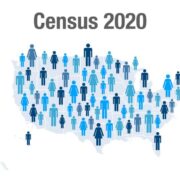
How upcoming redistricting will shape Asian American communities for the next decade
by Sonni Waknin and Alex De Ocampo
If there is one takeaway from the Presidential and Georgia Senate elections of 2020, it is the power of communities. Organizers all across the country, from the Navajo nation in Arizona to African American and Southeast Asian voters in Georgia, mobilized their communities to flex their political power and show that they will have their voices heard.
While federal elections are two years away, those very communities — and your community — could be at stake this year because of redistricting.
From your county school board to your state legislative and Congressional districts, every ten years election district lines are redrawn through the redistricting process.Redistricting is how we ensure that, as population densities change, we maintain roughly equal populations in each district. Using the decennial Census numbers, each state’s population is totalled and each state receives their Congressional district allotment. Additionally, the Census provides the population numbers to each state for their own state level district apportionment. From there the real challenge begins: drawing the districts.
District lines can be drawn by politicians, advisory commissions, or non-partisan citizen commissions. No matter who draws them, district lines determine resources, funding, and even what constitutes a neighborhood. More importantly, when lines are drawn without community input, existing neighborhoods or communities can be split up. That means that during redistricting your community could be put into a district with a community that has nothing in common with yours.
Take, for example, what happened in New York state in 2011. The Census had just been completed, and the state of New York had drawn new district lines. The Asian American Legal Defense and Education Fund (AALDEF), however, filed a complaint in a Brooklyn, NY federal court on behalf of four Asian American voters stating that the redistricted map that the state was proposing to adopt would have disenfranchised that area’s AAPI community. The court sided with AALDEF, and an independent “Special Master” was designated to redraw the maps, using neighborhood maps, ethnic data, and a “unity map” from the plaintiffs, resulting in a district in the Queens neighborhood that was 40% Asian American. This district ultimately went on to elect Grace Meng to represent them in Congress, making her the first AAPI Congressmember from the state of New York. District lines matter because representation matters.
So what can be done to keep communities together? In your area, local redistricting commissions will soon be hearing public testimony to inform how district lines are drawn. This is your chance to make sure that your community is represented and stays intact. Attend (or log on to) these meetings and give public comments about the importance of your community and that you do not want it to be split up. Organize your neighborhood and make sure that you let the redistricting commissioners know about the social and historic importance of where you live, and that you intend to keep it unified.
In 2021, we are all exhausted. From a pandemic that has kept us inside and isolated for a year, to a seemingly never ending Presidential and then Senatorial election, we all just want to relax. But the effects of redistricting are not like an election– they will last for the next ten years and have far reaching consequences. So for the future of your community, take an active part in the redistricting process and make your voice heard. To learn more about redistricting in your community and our work, go to https://latino.ucla.edu/votingrights, or visit FVEP at www.fvep.org.
* * *
The opinions, beliefs and viewpoints expressed by the author do not necessarily reflect the opinions, beliefs and viewpoints of the Asian Journal, its management, editorial board and staff.
* * *
Sonni Waknin is the Managing Attorney and Voting Rights Counsel at the UCLA Voting Rights Project. Her legal scholarship has been published in The California Law Journal, UCLA Law Review Discourse, and the Northwestern University Law Review of Note.
* * *
Alex De Ocampo practices Philanthropic Advisement for a private family foundation. In 2017, he was one of three co-founders of the Filipino Voter Empowerment Project which boosted voter turnout through direct voter contact and online/terrestrial media strategies.





